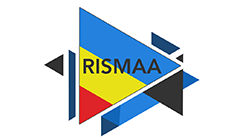Dr. Mihai Surdeanu, University of Arizona: Explainable Deep Learning for Natural Language Processing
În data de 21 iunie 2022, ora 12, sala 5/I (clădirea centrală), va avea loc prelegerea invitată cu titlul Explainable Deep Learning for Natural Language Processing, susținută de dr. Mihai Surdeanu, University of Arizona.
Abstract: While deep learning approaches to natural language processing (NLP) have had many successes, they can be difficult to understand, augment, or maintain as needs shift. In this talk I will discuss two recent efforts that aim to bring explainability back into deep learning methods for NLP.
In the first part of the talk, I will introduce an explainable approach for information extraction (IE), an important NLP task, which mitigates the tension between generalization and explainability by jointly training for the two goals. Our approach uses a multi-task learning architecture, which jointly trains a classifier for information extraction, and a sequence model that labels words in the context of the relation that explain the decisions of the relation classifier. This sequence model is trained using a hybrid strategy: supervised, when supervision from pre-existing patterns is available, and semi-supervised otherwise. In the latter situation, we treat the sequence model's labels as latent variables, and learn the best assignment that maximizes the performance of the extractor. We show that, even with minimal guidance for what makes a good explanation, i.e., 5 rules per relation type to be extracted, the sequence model provides labels that serve as accurate explanations. Further, we show that the joint training generally improves the performance of the IE classifier.
In the second part of the talk, we adapt recent advances from the adjacent field of program synthesis to information extraction, synthesizing extraction rules directly from a few provided examples. We use a transformer-based architecture to guide an enumerative search, and show that this reduces the number of steps that need to be explored before a rule is found. Further, we show that without training the synthesis algorithm on the specific domain, our synthesized rules achieve state-of-the-art performance in a 1-shot IE task, i.e., when only 1 example is provided for each class to be learned.















